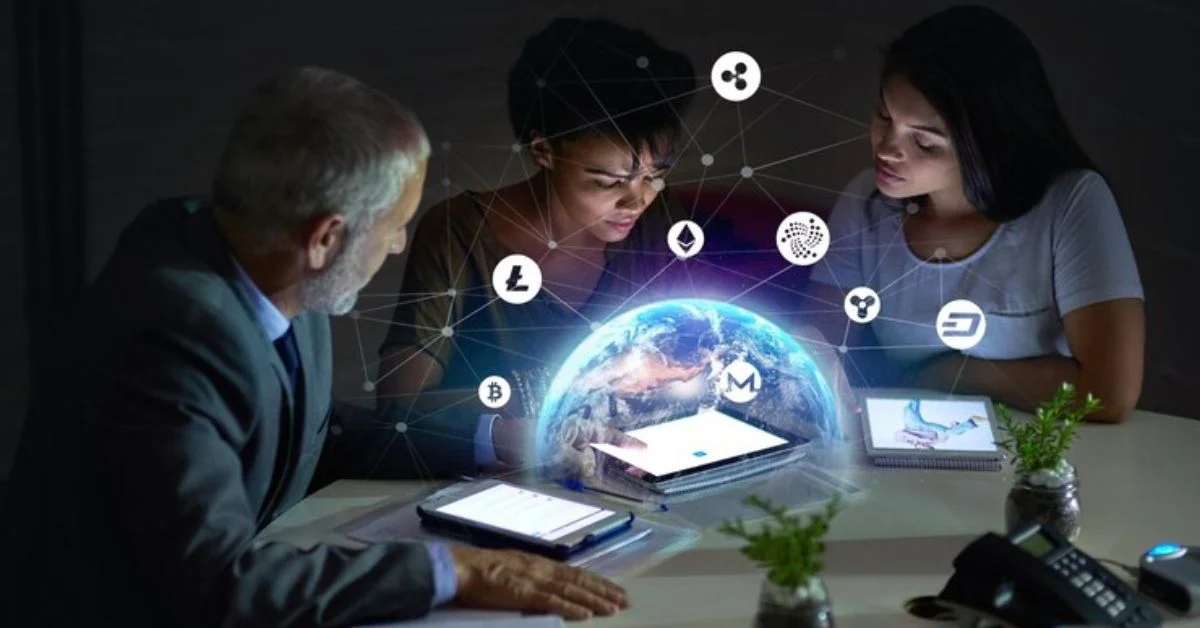In a world where innovation often seems to orbit around profit, speed, and market disruption, TechTable i-Movement.org offers something radically different: a deliberate, inclusive approach to the future of technology. It is not a company, not a typical nonprofit, and certainly not a startup in the traditional sense. It is a networked initiative, one that quietly works at the intersection of technology, ethics, and equitable development, designing systems and frameworks to bring historically excluded voices into the conversation—and more importantly, into the solution-building process.
At its core, TechTable i-Movement.org exists to answer a question that’s grown louder in recent years: who gets to shape the digital world we all live in? This article explores what the movement is, where it’s headed, and why it matters more now than ever.
What Is TechTable i-Movement.org?
TechTable i-Movement.org is a collaborative platform and initiative that seeks to reframe how technology is developed and deployed in modern society. Combining community-led insight with strategic partnerships in the tech industry, academia, public institutions, and civil society, it acts as a convergence space—what it calls a “tech table”—where diverse stakeholders gather to:
- Identify systemic gaps in technology access and equity.
- Design collaborative solutions that are community-informed.
- Launch pilot projects rooted in local needs.
- Train emerging leaders in ethical and equitable tech deployment.
The “i” in i-Movement stands for several key pillars: inclusion, innovation, integrity, and interdependence.
Origins: From Local Table to Global Model
TechTable i-Movement.org began not in Silicon Valley but in a community center in the Bronx, where local activists and educators were grappling with the digital divide long before it became a mainstream concern.
The early iteration of the initiative emerged around 2016, amid growing concerns about:
- Unequal access to high-speed internet and digital devices.
- The automation of low-wage jobs without corresponding reskilling programs.
- The increasing use of algorithms in areas like policing, hiring, and credit scoring—often without community consent or transparency.
A simple but radical idea emerged: what if instead of top-down tech solutions, communities had a seat at the table—literally and metaphorically? What if the people most affected by technological change had an actual say in how it’s designed?
This led to the creation of the first TechTable—a curated dialogue series that brought together technologists, local residents, policy makers, and educators to co-create responses to emerging tech-related issues.
Core Programs and Initiatives
TechTable i-Movement.org operates as both a framework and an ecosystem. It doesn’t create technology for the sake of innovation. It builds intentional infrastructure to ensure that digital transformation doesn’t deepen inequality.
Here are some of the core programmatic areas:
1. Digital Equity Labs
Experimental spaces where communities co-design solutions to local tech challenges—such as broadband access, remote education tools, or public data transparency. These labs prioritize open-source tools and culturally relevant design.
2. Community Coders Fellowship
A year-long program that recruits and trains young people of color and underrepresented tech talent to work on mission-driven technology projects, guided by ethical frameworks and mentorship from industry professionals.
3. Public Interest Tech Research
In partnership with universities, TechTable supports research on algorithmic bias, surveillance policy, and AI ethics—with a unique twist: research questions are co-authored by community members.
4. Tech Accountability Forums
Public convenings and digital town halls where community members and technologists hold platforms, policymakers, and developers accountable for the social impacts of their technologies.
Philosophical Foundations: Tech as a Commons
While much of the mainstream tech sector is grounded in venture capitalism, disruption, and private ownership, TechTable i-Movement.org builds on a different foundation: the idea of tech as a commons—a shared resource that must be protected, stewarded, and democratically governed.
This approach borrows from:
- Civic tech ideals, where technology is built for and by the public.
- Participatory design methodologies that involve users as co-creators.
- Community wealth-building models that keep value within local ecosystems.
For TechTable, the ultimate goal isn’t faster apps or bigger platforms—it’s a tech ecosystem that centers justice, dignity, and interdependence.
The Role of Storytelling in the i-Movement
TechTable i-Movement.org is equally invested in narrative change. One of its major insights is that the stories we tell about technology shape how it is used and who it serves.
To that end, the initiative supports:
- Digital storytelling residencies for marginalized voices in tech.
- Documentary projects capturing community-led innovations.
- Oral history archives focused on BIPOC communities and technology.
These storytelling efforts are not just side projects—they are part of a strategy to reclaim agency over the tech narrative.
The Ecosystem: Partners, Participants, and Impact
Unlike siloed nonprofits or venture-backed startups, TechTable i-Movement.org thrives on ecosystem thinking. Its partners include:
- Public libraries and community colleges, where many programs are hosted.
- Ethics and AI researchers from MIT, Howard, and other universities.
- Tech companies, particularly those open to radical listening and accountability.
- Grassroots organizers, who ensure that the movement remains grounded.
Over the past three years, the initiative has:
- Launched 24 community tech labs in 9 U.S. cities.
- Supported over 200 fellows through its coder programs.
- Helped influence local policies around digital privacy and data transparency.
- Advised on ethical AI policies for public agencies in two states.
Why It Matters Now
In a post-pandemic world, the digital divide is no longer theoretical. It is a material line between opportunity and exclusion. Remote work, telehealth, online education, and civic engagement are all now mediated through screens.
At the same time, we face unprecedented challenges:
- AI systems making decisions once made by humans.
- Social media platforms shaping elections and public discourse.
- Mass data collection from marginalized communities without consent.
TechTable i-Movement.org steps into this breach not with alarmism, but with design principles for a better digital society. It challenges us to ask not just “how does this tech work?” but “who does this tech serve?”
Challenges and Tensions
No movement is without friction, and TechTable is no exception. Key challenges include:
1. Funding Constraints
Because it resists the usual “scaling fast” logic of venture capital, it often depends on slow funding from foundations or individual donors who understand the mission.
2. Tech Industry Skepticism
Some corporate partners struggle with the decentralized, critique-driven approach. TechTable does not offer turnkey products—it offers slow, participatory change.
3. Maintaining Local Relevance
As it expands to new cities and contexts, the challenge becomes: how do you scale without losing the intimacy and integrity of localized, community-first work?
A Vision for the Next Decade
TechTable i-Movement.org isn’t trying to build the next unicorn startup. Instead, it’s trying to build the muscle of collective tech stewardship. Its future includes:
- A national Community Tech Policy Institute.
- An open-source curriculum for tech ethics in K-12 schools.
- Cross-border partnerships with communities in the Global South.
- A tech cooperative model where ownership is shared among contributors.
It is, in many ways, not a movement of tools, but a movement of values.
Conclusion
As the world races ahead into the next wave of artificial intelligence, automation, and virtual interaction, TechTable i-Movement.org offers a necessary pause—and a provocation. It asks us not just to marvel at what technology can do, but to take responsibility for what technology becomes.
In doing so, it reminds us that the digital future is not inevitable. It is being built. And we all deserve a seat at the table.
FAQs
1. What does TechTable i-Movement.org actually do?
It brings together communities, technologists, and policymakers to co-create ethical, inclusive, and locally relevant technology solutions.
2. Is TechTable i-Movement.org a nonprofit or a company?
Neither in the traditional sense. It’s a networked initiative with nonprofit structures but functions as a participatory movement and design ecosystem.
3. How can I get involved with the i-Movement?
You can participate in local TechTables, apply for fellowships, support the initiative financially, or join as a collaborating partner.
4. Does it focus only on U.S. communities?
While currently U.S.-centered, there are plans for global expansion, particularly in partnership with grassroots tech leaders in the Global South.
5. What makes it different from other tech equity organizations?
It prioritizes co-creation over consultation, long-term transformation over quick fixes, and emphasizes tech as a commons, not a commodity.
For more information, click here.









